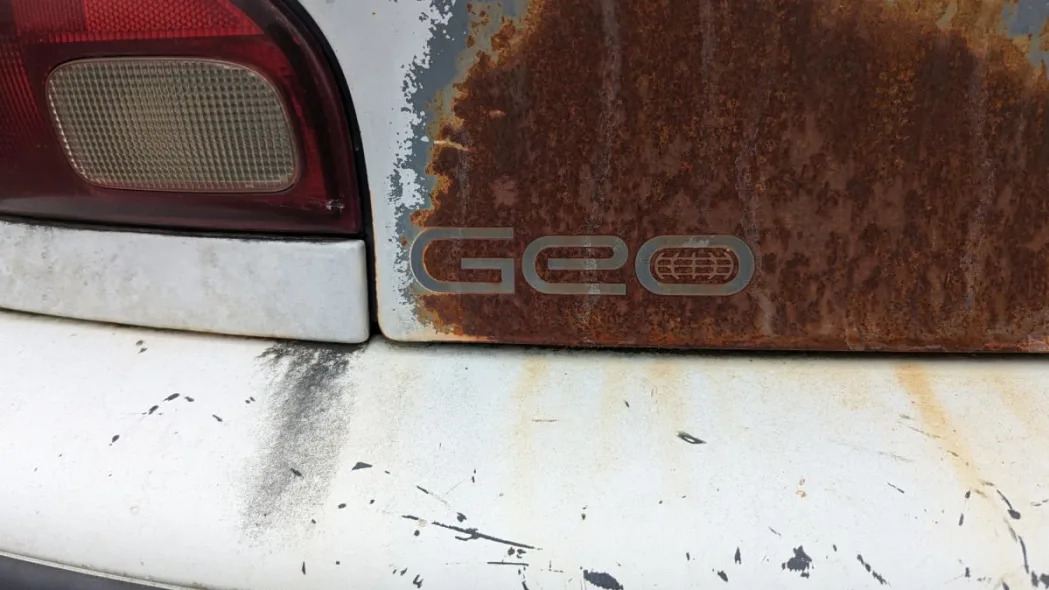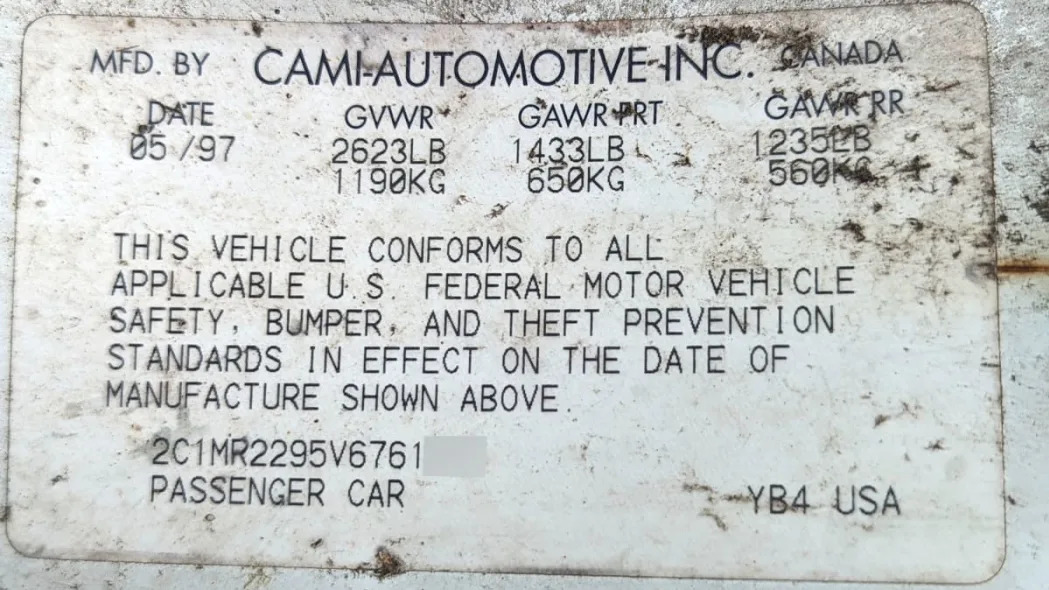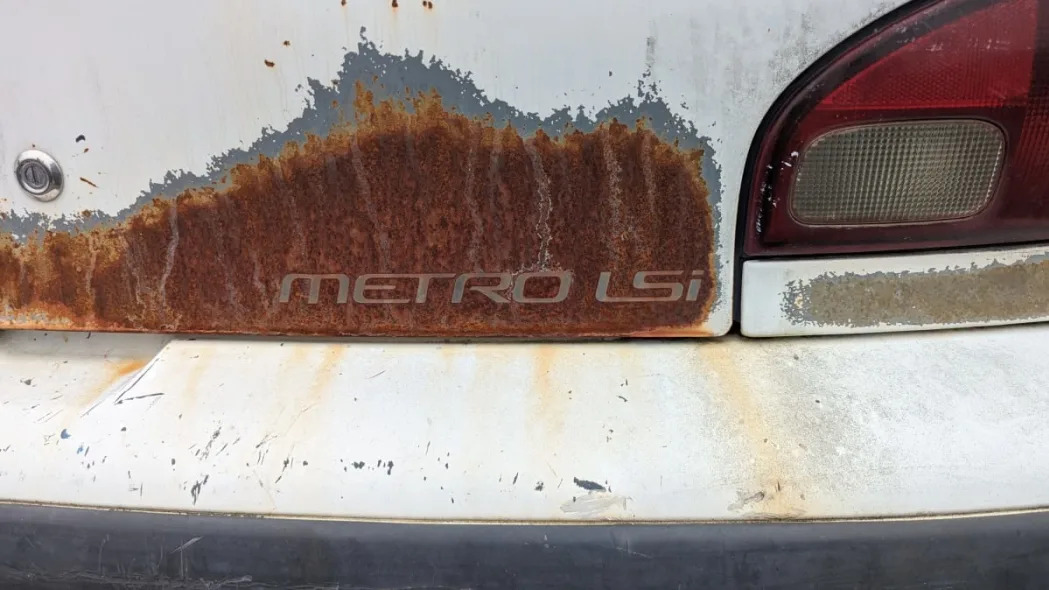Junkyard Gem: 1997 Geo Metro LSi

General Motors created the Geo brand in order to sell cars built in partnership with Suzuki, Isuzu and Toyota in the United States, and Geo-badged machinery was sold from the 1989 through 1997 model years. Today’s Junkyard Gem, found in a New Orleans self-service boneyard recently, is one of the very last Geos ever built.
There was always a close relationship between Geo and Chevrolet, which GM demonstrated by sneaking the Chevrolet bowtie into the Geo logo. The first three Geo-branded models began their careers with Chevrolet badging before getting Geo-ized for 1989. The Spectrum, twin to the Isuzu I-Mark, was a Chevrolet from 1985 through 1988. The 1985-1988 Chevrolet Sprint was a badge-engineered first-generation Suzuki Cultus, with its second-generation successor becoming the Geo Metro. The Prizm was a NUMMI-built Toyota Corolla Sprinter, which replaced the Sprinter-based 1985-1987 Chevrolet Nova. The Daewoo-built Pontiac LeMans never became a Geo, presumably because its ancestry was South Korean rather than Japanese.

In 1989, Geo added the Storm (Isuzu Impulse), followed by the Tracker (Suzuki Sidekick) as a 1990 model. In December 1996, GM announced that the Geo brand would get the axe in the fall of 1997, with the Prizm, Tracker and Metro becoming Chevrolets.

This car was built at CAMI Automotive in Canada in May 1997, making it one of the final handful of Geos assembled. The Chevrolet Metro stuck around through 2001.

For its final model year, the Geo Metro was available with one of two trim levels: base and LSi. This car is an LSi three-door hatchback, which had an MSRP of $9,180 ($17,906 in 2024 dollars). The base three-door hatchback for 1997 listed at $8,580, or $16,735 after inflation.

The most important difference between the base and LSi versions was found under the hood. The base Metro got a 1.0-liter three-cylinder engine rated at 55 horsepower and 58 pound-feet, while the LSi got the 1.3-liter “big-block” four-cylinder with 70 horses and 74 pound-feet. I owned a ’96 Metro with the four-banger for a brief period, and it wasn’t quite intolerably slow.

This car has the optional three-speed automatic, which added $595 ($1,161 today) to the price.

It also has air conditioning and a Delco AM/FM radio, which were included as part of the $1,346 1SE option package ($2,625 in today’s money).

It was thus a boring but serviceable commuter car that sipped gas and got its job done for 27 years and 113,610 miles.

It’s swampy and humid in Gulf Coast Louisiana, and so this car is a petri dish of various species of mold and mildew.

Parking can be tough in New Orleans, so a little Metro must have been convenient.
It’s a lot like a big fat car, but without the fat.



